Since the earliest days of my childhood, since I began to understand who I was and where I belonged, whenever someone asked me about my origins, I would recite the same words: “I am from Dongola, Argo locality, Dar al-‘Awda.” But the truth is, I never felt that I truly belonged to that place. Those words were simply something I had been taught to say. How could I feel a bond with a place where I was never born, never raised, never studied, and never even stayed for long?
Yet destiny had other plans. Life carried me back to my roots, back to my first homeland.
It was the war of April 2023 that forced me to return and discover the land where my father was born, and where he lived most of his life. My journey to get to know this land began from my grandfather's house, next to which stood a large neem tree, and beneath which lay my grandfather's bed, though he has long since passed. The door of that house was, as always, wide open. In fact, it had never been closed since it was installed, not the old wooden one nor the newer iron door that replaced it. In the villages it was custom to never close the doors of houses, welcoming strangers as easily as kin.
If you were to ask, “Why don’t you close your doors?” the reply would come with a smile: “"And who would we be closing the door against? Our own people?”
This was so different from Khartoum, the city where I had lived most of my life, where neighbors are simply neighbors, their ties sometimes rarely extending beyond a polite greeting. But here, kinship and neighborhood are inseparable, woven together into a fabric of closeness and trust. I was astonished as I stepped into the homes of relatives, one after another, and felt an overwhelming sense that this village belonged to me, and I to it.
On one visit, I met one of my grandmothers. She welcomed us into her home, guiding us along a shaded path where sunlight could not reach, the dense trees on both sides giving it an almost enchanted charm.
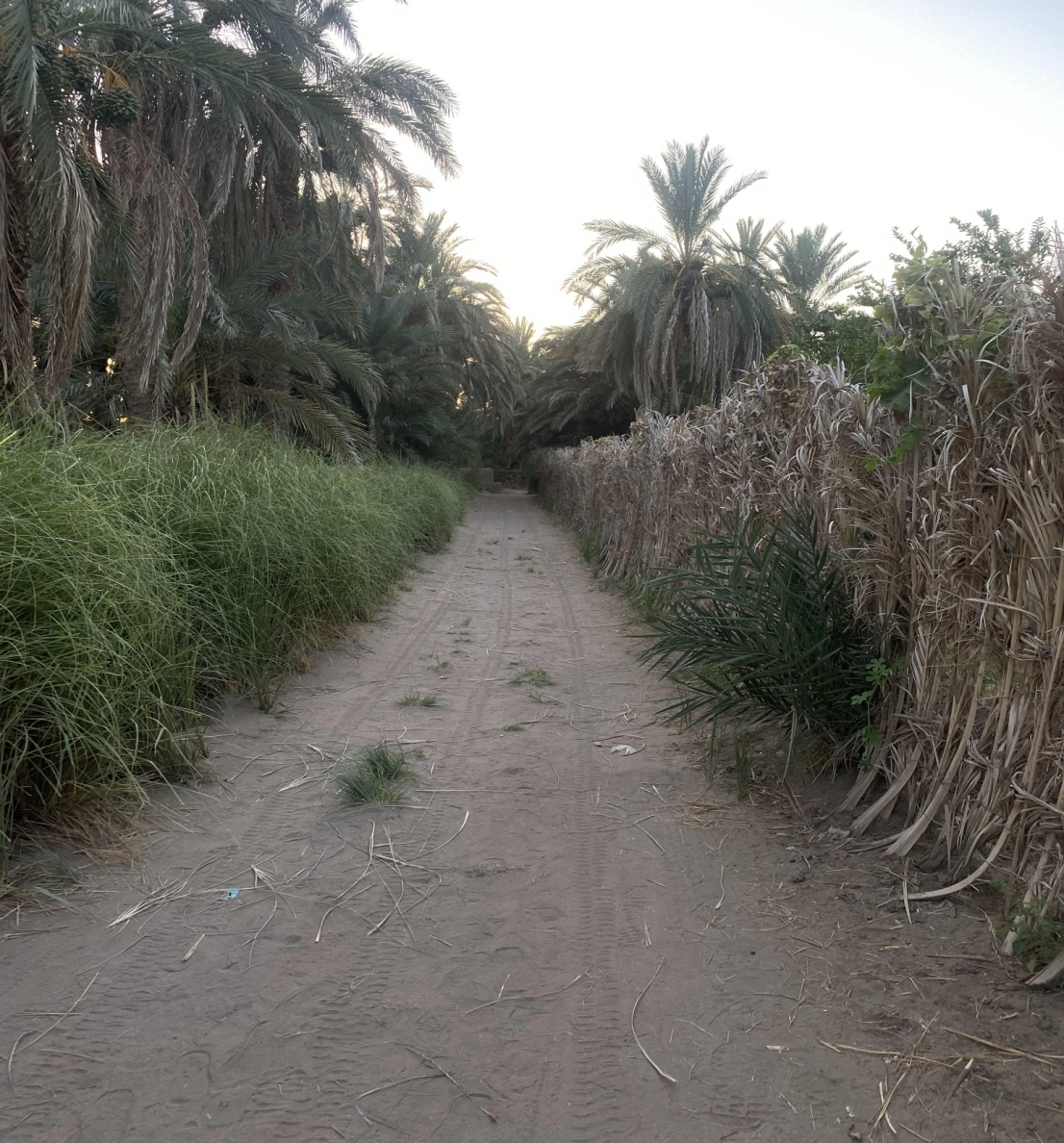
The thick trees on either side of the path give it a special, enchanting beauty
We sat with her as she prepared coffee, the “jebena.” It was the best coffee I had ever tasted, rich in flavor and aroma, mingling with the smoky scent of firewood and the warmth of cardamom.
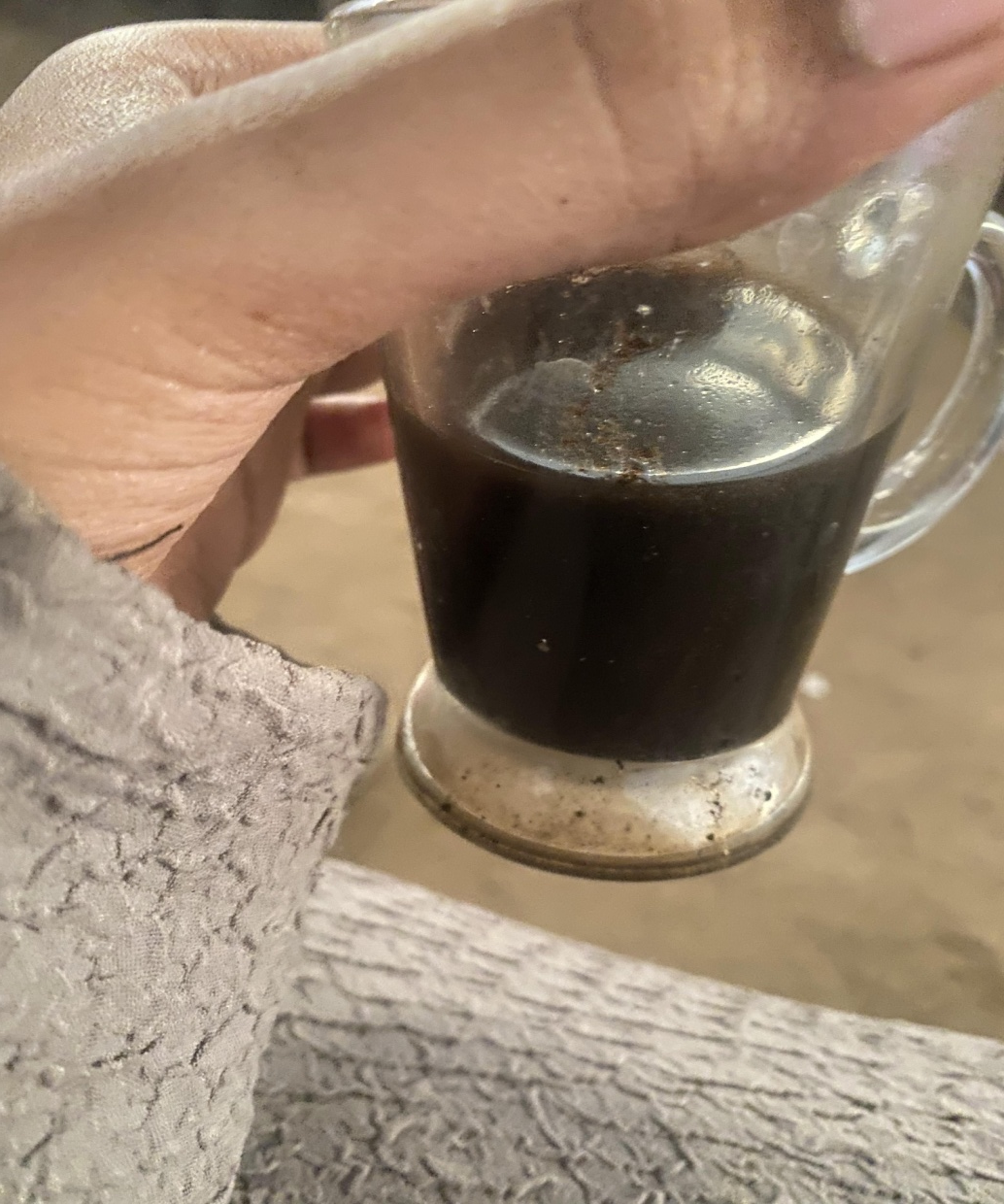
The cup of coffee, made through rituals that nourished my soul and delighted my senses
Then she invited me into the jenena, what I came to call her “secret garden.” The entrance was a narrow, hidden little door, almost invisible to the eye. But once inside, it was breathtaking. Lemon, orange, and mango trees filled the garden, and of course, tall palms swayed above them all.
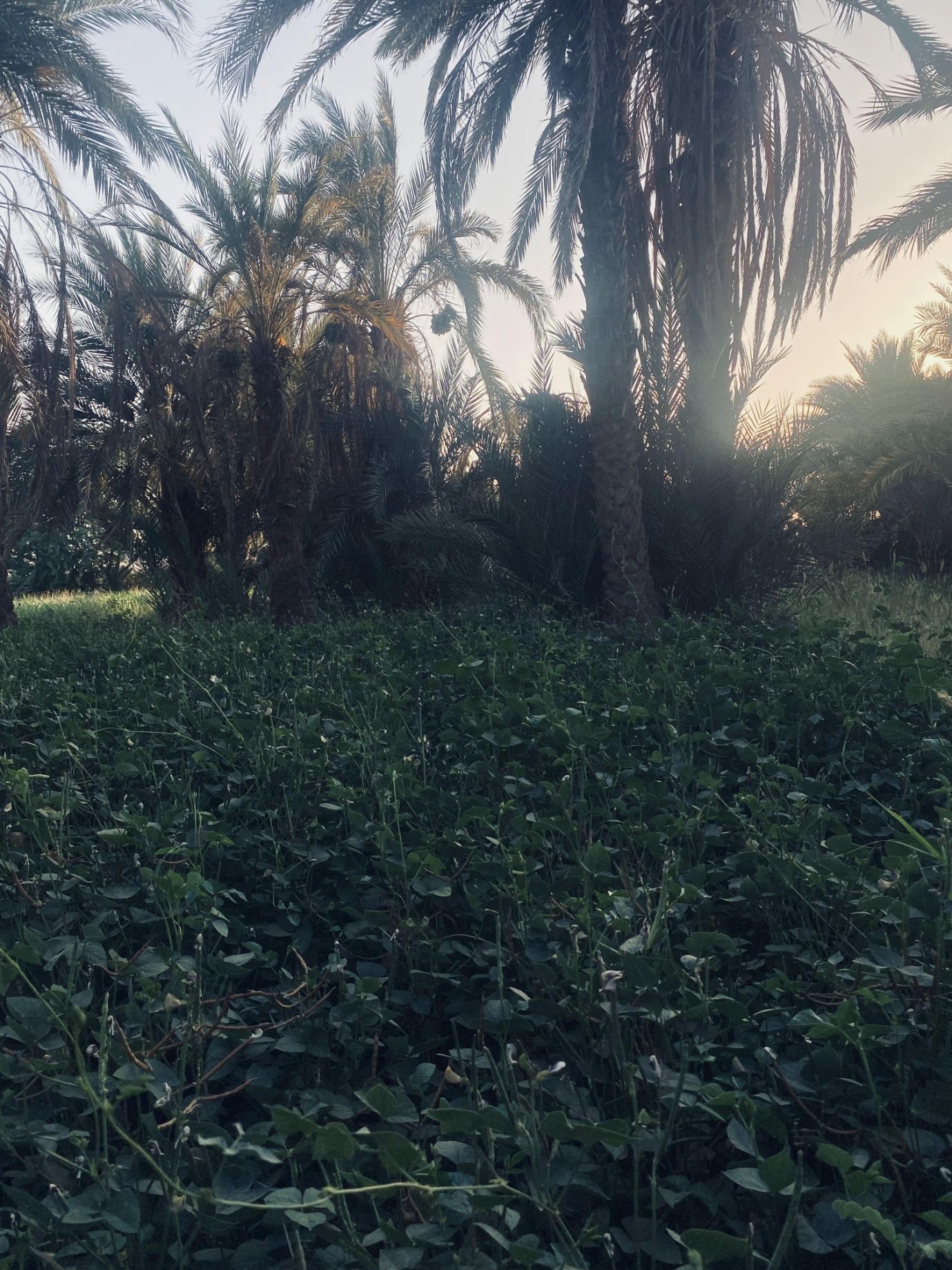
The jenena —what I fondly named 'the secret garden
The fragrances were intoxicating, citrus blossoms blending with the damp earth, carried on the breath of the purest air. A gentle breeze touched my face, whispering the secrets of a place untouched by city life. This little garden, more than any other corner of the village, carved its way into my heart.
I don’t know if it was because of the secret doorway, or the garden’s beauty itself, or the way my grandmother introduced it to me, with pride glowing in her voice as she named each plant and tree with deep affection.
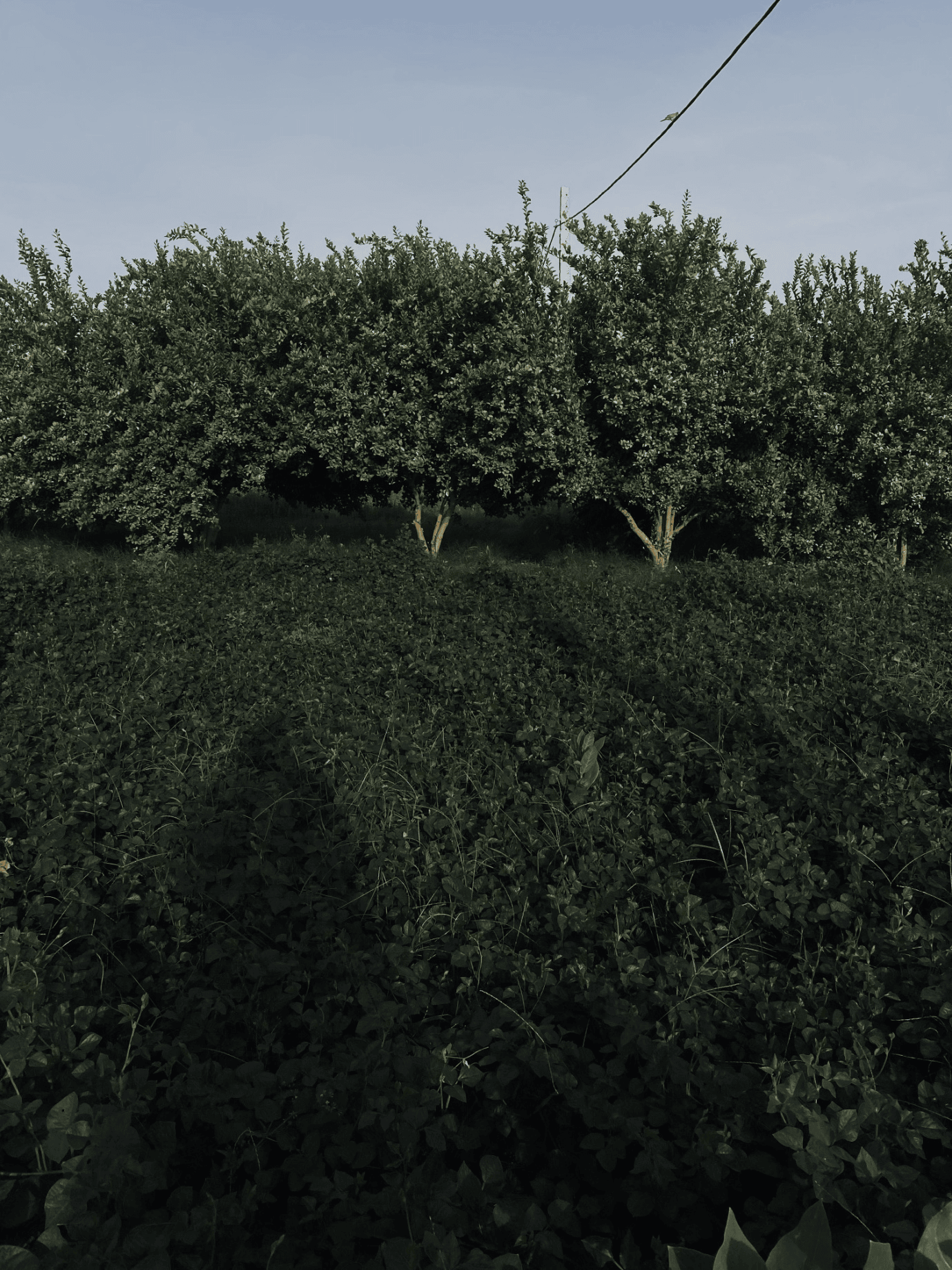
The scent of citrus fruits fills the air, weaving a fragrant bond with the place
As I wandered the village paths, I came across abandoned houses left just as their owners had departed. Their designs were striking, unusual, timeworn yet unshaken, still standing tall as a testament to their owners' presence. Each house still bore its family’s name, even long after they were gone, carrying a kind of quiet dignity in their details, as if they, too, belonged to the memory of the village.
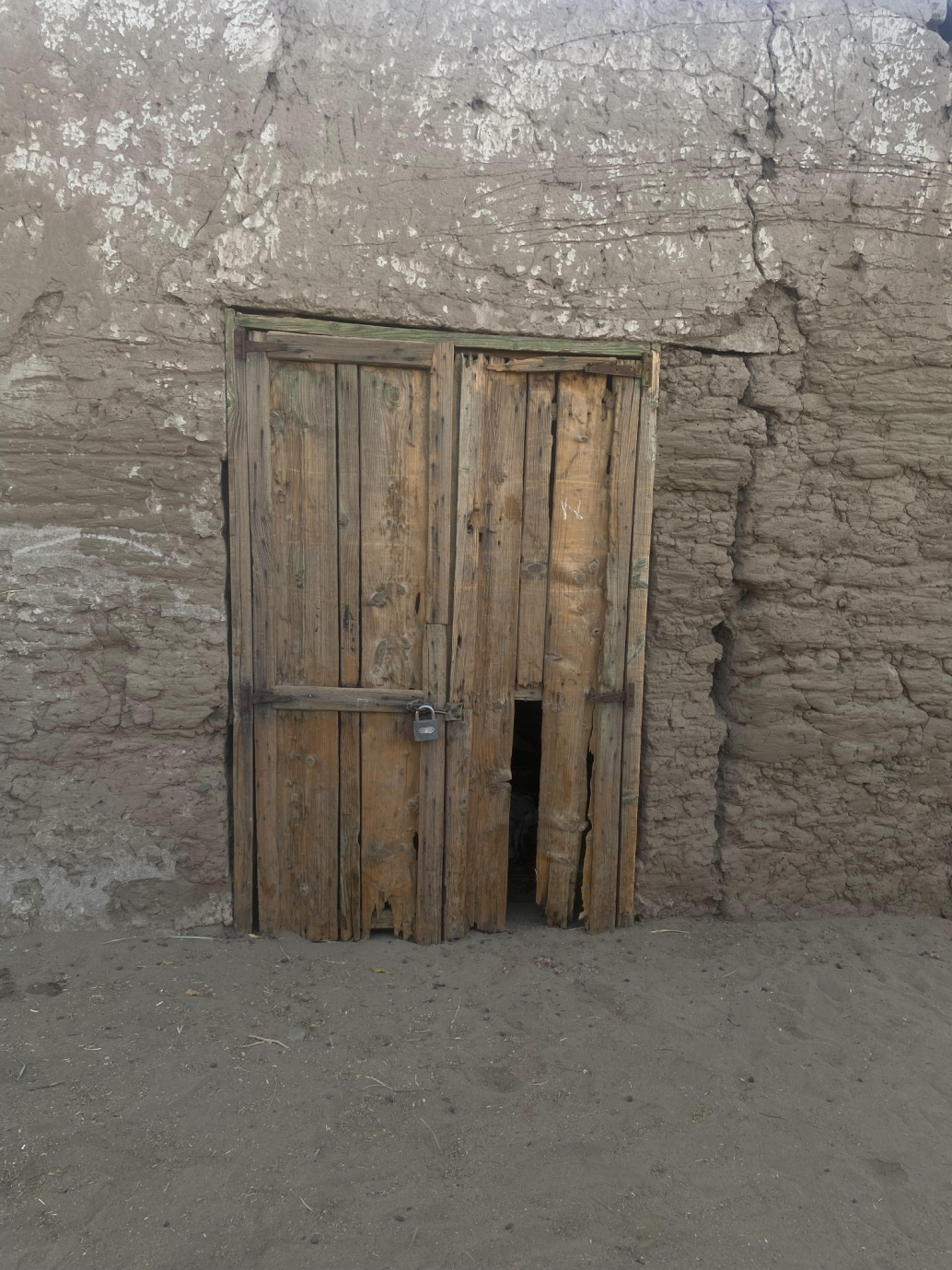
The proud, lofty houses remained as silent witnesses to the lives once lived within them
Our village, Dar al-‘Awda, was one of the largest in the Argo locality, and among the most densely populated. Its very name, “the home of compensation”, comes from a story of displacement long ago: when the Nile had swallowed the people’s original lands in the Mahas region, and they were resettled here. That memory is embedded in the name itself.
The atmosphere was calm and serene, free from the sounds of cars and the bustle of cities. Life was simple, yet in its simplicity, beauty shone through, in the people, in the homes that embraced them, in the trees under which families gathered after afternoon prayers, their laughter and conversations weaving together a warmth that filled my heart with belonging.
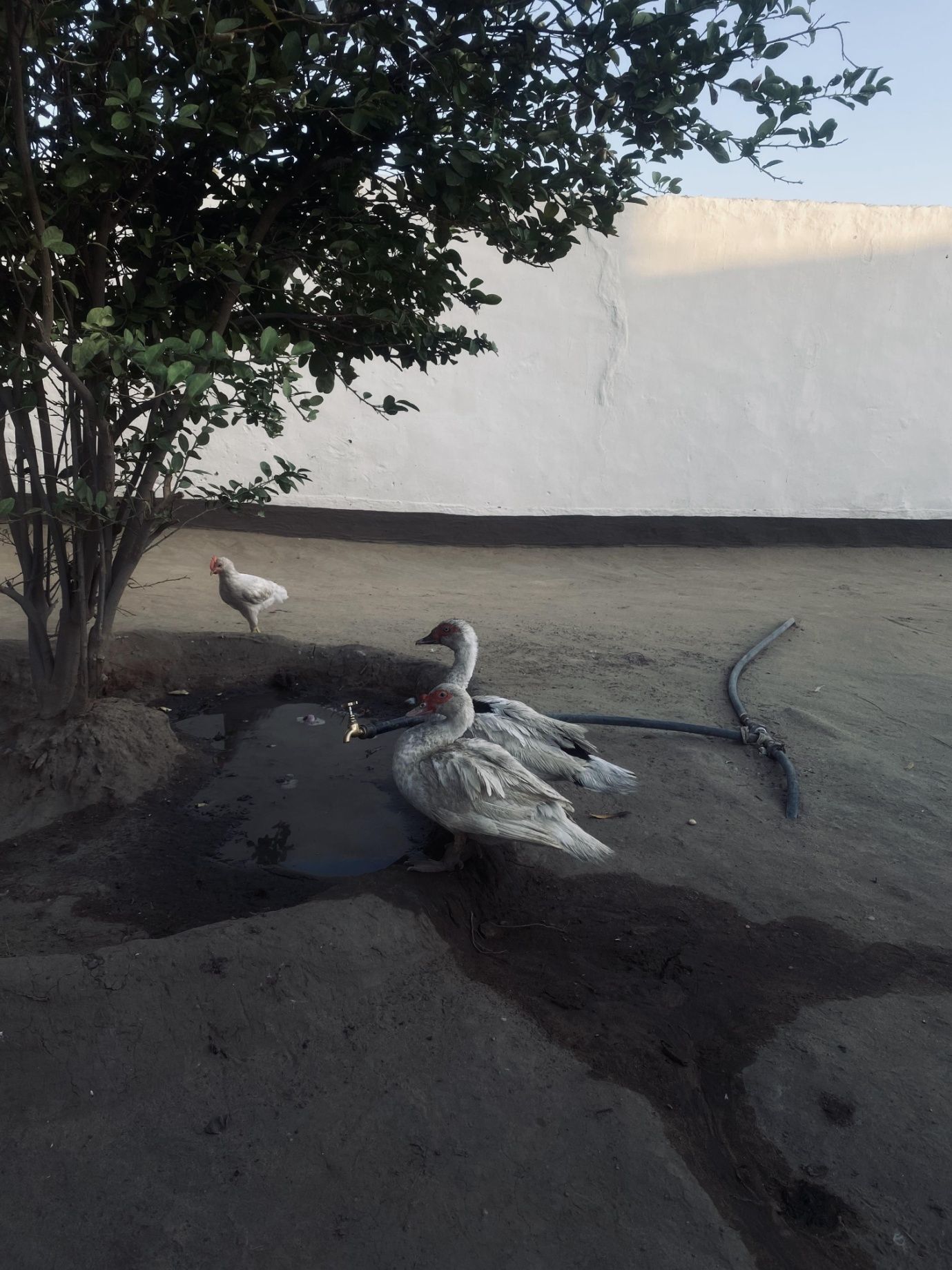
I fell in love with the spirit of the village and everything it held—its nature and its animals
“Without memory, there can be no real relationship with a place.” – Mahmoud Darwish
The days I spent in the village gave me true memories and feelings, generating within me a deep sense of belonging to this place. I never thought such emotions would find their way back into my heart, especially after I was forced to leave my home in Khartoum. But Darwish was right: without memory, there can be no bond. And now, my memories here made this bond unbreakable. This land has become a part of me, residing in my heart without permission.
If weren't for the war, I would never have seen this place differently. What once seemed like a dull, repetitive, uneventful life now felt full of vitality. It shifted my view of what it meant to stay here, something I had once thought impossible.
I came to realize that home is not always about geography; it is about the people we live among. It is our family, our friends, our community. They are the ones who create home, and they are the ones who give us the feeling of belonging.